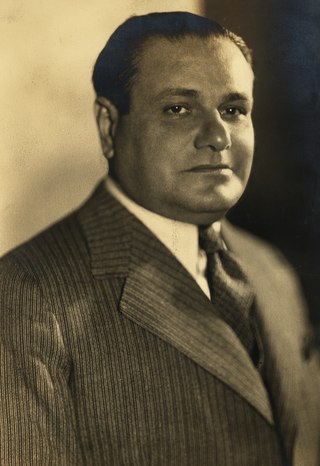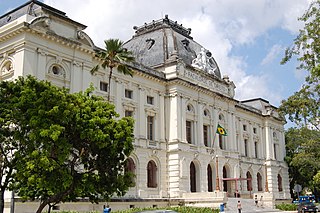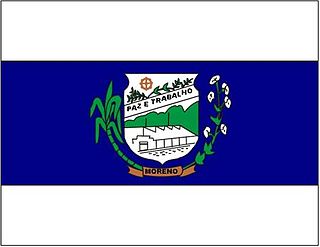
Recife is the state capital of Pernambuco, Brazil, on the northeastern Atlantic coast of South America. It is the largest urban area within both the North and the Northeast Region of Brazil. It is the largest city in Pernambuco state, and the fourth-largest urban area in all of Brazil; the metro population of the city of Recife was 3,726,974 in 2022. Recife was founded in 1537, serving as the main harbor of the Captaincy of Pernambuco—known for its large-scale production of sugar cane. At one point, it was known as Mauritsstad, when it served as the capital city of the 17th century colony of New Holland of Dutch Brazil. Situated at the confluence of the Beberibe and Capibaribe rivers, before they drain into the South Atlantic Ocean, Recife is a major seaport along the Brazilian Atlantic coast. Its name is an allusion to the stone reefs that are present offshore. Together with the urban presence of the Beberibe and Capibaribe rivers and their tributaries, the many additional unique, small islands—and more than 50 bridges linking them throughout the city—create a distinct maritime or "riviera" atmosphere, leading to Recife being known as the "Venice of Brazil".

Pernambuco is a state of Brazil located in the Northeast region of the country. With an estimated population of 13 million people as of 2022, it is the seventh-most populous state of Brazil and with around 98,067.877 km2, it is the 19th-largest in area among federative units of the country. It is also the sixth-most densely populated with around 89 people per km2. Its capital and largest city, Recife, is one of the most important economic and urban hubs in the country. Based on 2019 estimates, the Recife Metropolitan Region is seventh-most populous in the country, and the second-largest in northeastern Brazil. In 2015, the state had 4.4% of the national population and produced 2.8% of the national gross domestic product (GDP).

Camaragibe is a city in the Northeastern region of Brazil, in the state of Pernambuco. It lies within the Greater Recife — Brazil's 5th-largest metropolitan area.
Salgueiro is a city in Pernambuco, Brazil. It is located in the mesoregion of Sertão Pernambucano. Salgueiro covers an area of 1687 square kilometers and had in 2020 an estimated population of 61,249 inhabitants.

Sport Club do Recife, commonly known as Sport Recife or simply Sport, is a Brazilian sports club, located in the city of Recife, in the Brazilian state of Pernambuco. Founded in 1905, the club currently plays in Série B. In football, the club has won six CBD/CBF titles, including three national and three regional. Its greatest achievements are winning the 1987 Brazilian Championship and 2008 Copa do Brasil. In addition to professional football, the club also participates in women's football and Olympic sports, such as rowing, swimming, hockey, basketball, futsal, volleyball, table tennis, taekwondo, judo and athletics. Their historical rival is Náutico, and they both dispute the Clássico dos Clássicos. The derby against Santa Cruz is called the Clássico das Multidões, while the derby with América is called the Clássico dos Campeões.

Estádio Adelmar da Costa Carvalho, commonly known as Estádio Ilha do Retiro, Ilha do Retiro or simply Ilha, is a football stadium situated in Recife, State of Pernambuco, in Northeastern Brazil, and owned by Sport Club do Recife.

Adelmar Tavares da Silva was a lawyer, magistrate, jurist, professor and poet from Recife. He was a member of Brazilian Societies devoted to criminology and law. As a poet he was respected with several of his poems becoming songs. In 1948 he became President of the Academia Brasileira de Letras.

The Recife Brazil Temple is the 101st operating temple of the Church of Jesus Christ of Latter-day Saints.

São Lourenço da Mata is a city located in the greater Recife metropolitan area in the state of Pernambuco, with a population of 114,079 inhabitants. The city was one of the hosts of the 2014 FIFA World Cup. The new Arena Pernambuco is set to boost the local economy with the construction of a new stadium, flats, car parks, hospital, technical school, shopping center, integrated metro-bus station, and road improvements.

The Recife School of Law, is the law school of the Federal University of Pernambuco, it is located in Recife, Pernambuco, Brazil.

Gameleira is a city in Pernambuco, Brazil. The name Gameleira is derived from the large number of Gameleira trees that were growing in the region. The city is 99 km away from Recife, the capital city of Pernambuco. Gameleira has a bus terminal, a public library, two state schools and several municipal schools.

Água Preta is a Brazilian municipality (city) in the state of Pernambuco. It covers 533.33 km2 (205.92 sq mi), and has a population of 37,082 with a population density of 62.05 inhabitants per square kilometer.

Moreno is a city in the state of Pernambuco, Brazil. It's integrated in the Recife metropolitan area with another 13 cities. Moreno has a total area of 195.6 square kilometers and had an estimated population of 63,294 inhabitants in 2020 according with IBGE.
Maraial is a city in Pernambuco, Brazil. It is located in Zona da mata Pernambucana, 154 km from the state capital, Recife.

The Brazilian Roller Hockey National Championship is the biggest Roller Hockey Clubs Championship in Brazil.
The Pernambuco Brasil Open Series is a tennis tournament held in Recife, Brazil since 2011. The event is part of the ATP Challenger Tour and is played on hard courts.

Alexandre José Barbosa Lima e Sobrinho was a Brazilian lawyer, writer, historian, essayist, journalist and politician
Manoel Carlos de Lima Filho or simply Neco is a retired Brazilian footballer who played as a winger and a manager.

Forte de São Tiago das Cinco Pontas is a fort located in Recife, Pernambuco in Brazil.
Tereza Costa Rêgo was a Brazilian painter. She received the Ordem do Mérito Cultural in 2011.














